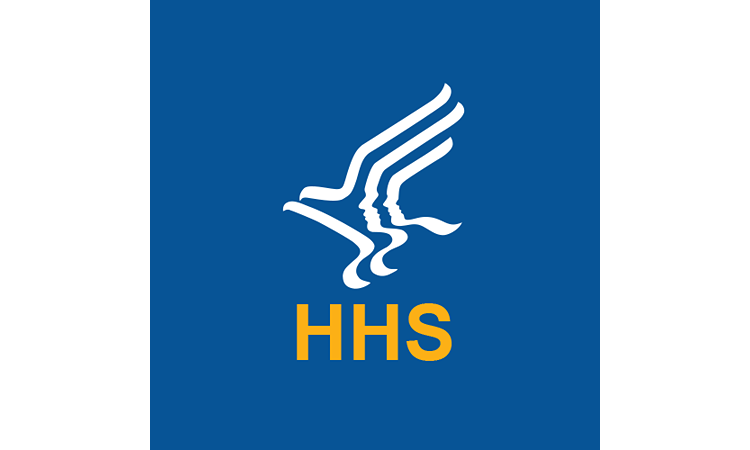June 23, 2011 — Justices find Vermont violated First Amendment rights of pharma and data publishers
Sweeping aside justifications by the state of Vermont and privacy advocates, the United States Supreme Court today found the Vermont ban on marketing use of Rx data a violation of the First Amendment.
” This is a victory for patients as well as industry, ” said John Kamp, Executive Director of the Coalition for Healthcare Communication. “Although couched in language of privacy and cost reduction, the Vermont bill was a transparent attempt to censor industry while allowing others to talk. Enlightened public policy makers have always known that was a bad idea. Now they know it is also unconstitutional.”
More soon.
………………………
April 20, 2011 — On Tuesday, April 26, the U.S. Supreme Court hears oral arguments in a case – Sorrell v. IMS Health Inc. – that could be a game changer for data gathering companies, the pharmaceutical and biotechnology industries, advertising agencies, medical publishers and other media. The Supreme Court will decide whether the First Amendment protects the collection and marketing use of physician prescribing practices.
“Victory or loss in this case will depend largely on how the majority of Justices construe the question,” said John Kamp, executive director of the Coalition for Healthcare Communication, which filed one of 16 amicus curiae briefs in support of IMS Health. “Listen carefully to the questions by the Justices. The tenor and direction of the Justices’ questions during oral arguments will give clues to the decision, which is expected in June.”
In Kamp’s view, medical marketers have a First Amendment right to use legally collected data and data analytics to communicate with the appropriate doctors and patients using targeted messages and media. If IMS loses because the Court considers these activities unworthy of First Amendment protections, “the assaults on data gathering and use in marketing will proliferate,” Kamp commented. “The ensuing legal actions will not just be about IMS data, but all marketing uses of data, which would be a huge blow.”
Focus of Court’s Questions?
“If the Justices ask whether the Vermont ban restricts the First Amendment right of pharma companies to speak about their products, I think we’ll win,” Kamp said. “The restriction is egregious because it allows the government and managed care companies to detail using the data, but bans industry from using the same data in a similar manner,” he noted.
For example, Wolters Kluwer Pharma Solutions and similar analytical companies, as well as pharmaceutical companies, need this information in order to identify and reach the prescribers who will value information about new therapies, according to Cathy Betz, vice president, Government Affairs, Wolters Kluwer.
“What the case is not about is privacy,” said Betz. “The data that is being restricted (physician prescribing information) is stripped of patient identity and patient identifiers (as required by federal law) before we ever receive it from our suppliers. We also utilize security protections by implementing appropriate administrative, technical and physical safeguards to further protect this anonymous information,” she noted.
“Every court to consider the question has therefore recognized that patient privacy is not at issue in these cases. This law also does nothing to establish a physician privacy right in their professional practice information because it allows wide dissemination of prescriber history information to many people for many purposes,” Betz said.
However, if the Justices “decide that the question is whether or not IMS can gather and sell prescription data that in turn can be sold to pharma for marketing purposes, we may lose,” Kamp stated. “The Court has never found data gathering and use, per se, as a First Amendment-protected activity. Our brief and others argue that this activity should be protected because it informs marketing, but this could be a stretch for the Justices.”
Of course, handicapping results based on oral arguments is a very risky proposition, according to Christopher A. Mohr, an attorney with Meyer, Klipper & Mohr PLLC, and counsel of record for the amicus brief filed by the Coalition, American Business Media, The Consumer Data Industry Association, CoreLogic, The National Association of Professional Background Screeners, and Reed Elsevier Inc.
In the brief, these entities urge the Supreme Court to adopt a Court of Appeals for the Second Circuit decision that invalidated the Vermont law on the ground that it violated the First Amendment by banning the voluntary exchange of truthful information on a matter of public importance. The Coalition and its co-filers argue selective bans on data use is “wrong and constitutes a dangerous threat to First Amendment values,” and that the “compilation, aggregation and distribution of the content of informational databases is entitled to First Amendment protection.”
“If the First Amendment means anything, it means that government regulation of speech is a last resort and the government may do so in a way that is tailored to the interests it is trying to advance,” Mohr said, adding that in a related case involving the same plaintiffs (which technically is not before the Court), the Court of Appeals for the First Circuit “rejected that basic constitutional maxim and held that when information is gathered for commercial purposes and treated like a commodity, the state may regulate it just like ‘beef jerky.’
“The state and its amici are urging the [Supreme] Court to adopt the First Circuit’s view,” Mohr continued. “Such a holding is unprecedented and radical.”
Court Decision’s Implications
Henry Horbaczewski, general counsel, Reed Elsevier, agreed with Mohr’s assessment. “From my perspective, this case is about whether government can regulate information like beef jerky rather than as speech, and, in particular, whether government can regulate conduct by denying persons access to information needed to make informed decisions,” Horbaczewski said.
Mohr also asserted that there is another troubling aspect to this case. “Facts are the building blocks of discourse. In this case, Vermont has decided that those facts enable face-to-face sales presentations between drug sales reps and doctors that are truthful, but ‘too good,’” he said. “Rather than ban unethical practices (e.g., kickbacks, etc.) the state has attempted to cut off the flow of information to an industry to ‘dumb down’ these conversations … Vermont has legitimate, even compelling interests in reducing health care costs, but it has chosen a very dangerous, almost sinister means to accomplish its ends,” he concluded.
“If Vermont prevails, this decision could have implications for the free flow of information in our society, threatening numerous industries and companies that collect, analyze, and sell truthful information vital to the public,” according to Betz. “The very real fear among other companies and industries engaged in this type of business is that government can choose to restrict information flow whenever it decides it doesn’t like the outcomes in the marketplace that are being produced with the help of the information and insight,” she asserted.
The Coalition will continue to monitor ongoing developments in this case.cialis online prescriptions



